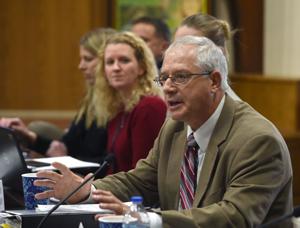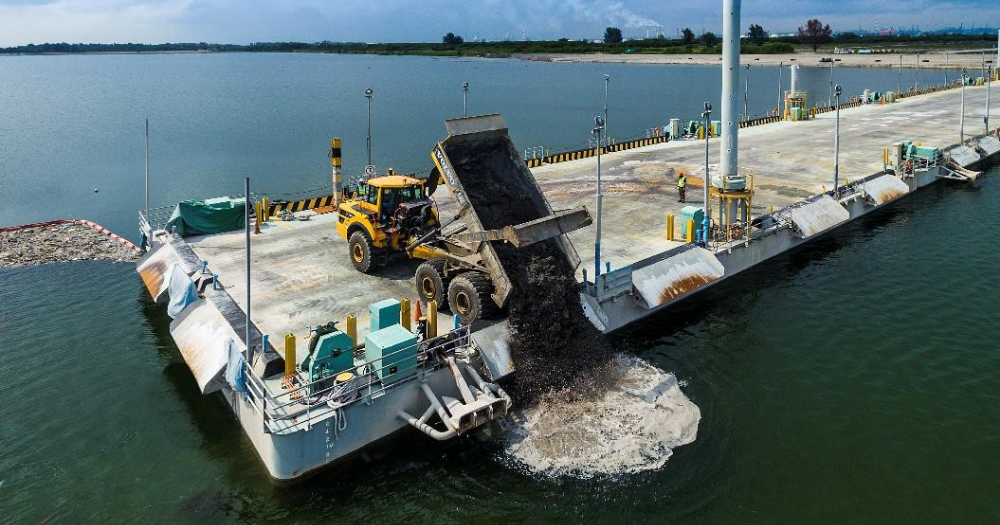
Gov. Gavin Newsom signed a plan to provide $2.5 billion in relief to communities damaged by the Los Angeles fires ahead of President Donald Trump’s Friday tour of the Pacific Palisades.
“This money will be made available immediately,” Newsom said Thursday. “We want to get these dollars out in real time so there’s no anxiety and stress associated with that.” Newsom and fellow Democrats in California continue to search for the right balance between collaboration and confrontation with the new president, who has repeatedly threatened to condition federal reimbursement on major changes to the state’s water system.

After approving bipartisan fire relief funding, the state Senate passed a more controversial proposal to finance legal battles against the federal government , potentially including disputes over federal disaster aid. “I’m here for the long haul, to support the president where we can, to defend our values where we must, to have the backs of diverse communities,” Newsom said. “At the same time, we work together on critical issues.
” Former President Joe Biden, in one of his final acts in office, pledged federal support for the next three months. But since the fires broke out earlier this month, Trump has repeatedly insulted Newsom and falsely blamed the fires on unrelated state water policy, including in a Wednesday interview with Fox News. Though Newsom said he has not had any contact with Trump in advance of his visit, the governor expressed confidence that federal aid would not be delayed.
As of Friday morning, it remained unclear whether he would invite Newsom. Los Angeles Mayor Karen Bass and other elected officials will join Trump for a fire briefing after his Pacific Palisades tour this afternoon. Trump’s threats to condition aid have already split Republicans, with some GOP House members from swing districts in California saying they oppose attaching strings when families are displaced and suffering.
The bills passed in Sacramento this week were part of a special session that Newsom initially called in the wake of the election to fund potential legal challenges against the Trump administration. In a special session, debate is limited to topics picked by the governor — and any bills signed can take effect more quickly. Newsom expanded the session last week to include proposals related to fire response.
The relief bills Newsom signed passed both the Assembly and Senate without opposition. The money can be spent in a variety of ways, including on hazardous waste removal, shelter for evacuees and preparation for compounding disasters such as mudslides. “While we’ve made progress, there’s still a significant journey ahead as we transition from containment to recovery,” said state Sen.
Sasha Renée Pérez, who represents Altadena, which was heavily damaged by the Eaton Fire. “As we begin that process, I’m also appreciative that this bill is supporting the cleanup efforts regarding air quality, water and other environmental testing.” But Trump — as well as House Speaker Mike Johnson and other Republicans in Congress — have repeatedly said that they want to condition federal help on changes to California policies.
Politico reported there have been internal GOP discussions about linking fire aid to an increase in the national debt limit in order to garner Democratic support for a bill that will not pass with just Republicans. House Minority Leader Hakeem Jeffries said Thursday that Democrats would not support that plan . Beyond the debt limit, it’s not exactly clear what sort of conditions Republicans are considering.
Trump has repeatedly made false claims that firefighters were unable to battle the Los Angeles blazes because Newsom declined to send more water south from the Sacramento-San Joaquin Delta. Los Angeles is not currently facing a water shortage. But that’s not what California Republican lawmakers have been pushing: Policy reforms introduced by state GOP legislators are more focused on increasing controlled burns and other wildfire prevention by suspending environmental laws.
And some Republican Congressmembers who represent swing districts have flatly rejected any conditions on aid, including Orange County Republican Rep. Young Kim. “When natural disaster hits your communities, it is not partisan, it is not a blue or red issue — we are talking about life and death,” Kim said in an interview on Fox 11 Los Angeles.
“We are talking about communities that are hurting, so there shouldn’t be any conditions other than making sure we bring the resources and aid as soon as possible to our communities.” California Democrats agree. Rep.
George Whitesides, who just flipped a Los Angeles swing district, called the idea of conditioning aid “absolutely unacceptable and really quite offensive.” “To say to these people, because of politics, we need to slow down or reduce the aid of the type that we have given to North Carolina and Louisiana and Florida?” he said. “We need to get these people help in a huge amount as fast as we can.
” While Democrats are standing united on that issue, debate Thursday over the Trump-related legal aid was more contentious in the state Capitol. The plan consisted of two bills: one to set aside $25 million for the state Department of Justice, which filed its first suit this week against Trump’s bid to end birthright citizenship, and another to earmark $25 million for nonprofits to represent Californians facing detention or deportation. “These are the people that take care of our kids, that work in the fields, that do the landscaping, that work in a number of different industries, whether it’s construction or hospitality,” said state Sen.
Anna Caballero, D-Merced. “How are we going to get things done?” Republicans were joined in their opposition to the first proposal by Sen. Melissa Hurtado, a Democrat whose Central Valley district voted for Trump by nine points in November.
“I feel, personally, that ‘Trump-proofing’ is a missed opportunity to urge the president for meaningful change,” Hurtado said. “We should be working with the president to ensure that public safety deportations are targeted, protecting communities from genuine threats, while safeguarding the dignity and rights of hardworking immigrants.” Echoing arguments made by Trump’s top immigration officials, Hurtado and Republicans in the state Senate criticized California’s sanctuary policy, arguing it endangers immigrant communities.
The state’s sanctuary law restricts local and state law enforcement from using their resources to enforce immigration law, though it doesn’t entirely bar state cooperation with immigration officials, particularly if an immigrant has a criminal conviction. For example, state prison officials have turned thousands of immigrants over to federal immigration authorities in recent years after they completed a state prison sentence. Still, sanctuary opponents argue that if state and local police aren’t allowed to work more closely with immigration agents, raids will be pushed into the broader community and result in more people who do not have criminal records being deported.
Trump has made clear he opposes sanctuary policies and wants to punish cities and states that have them. “We’re trying to get rid of them, and we’re trying to end them,” he said on Fox News this week. Asked if he’d cut off federal funds to sanctuary jurisdictions entirely, the president responded, “I might have to do that.
”.















